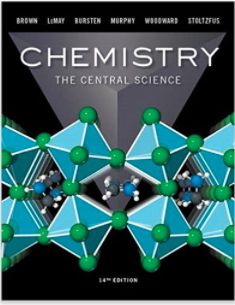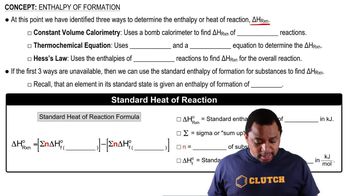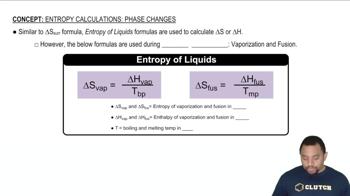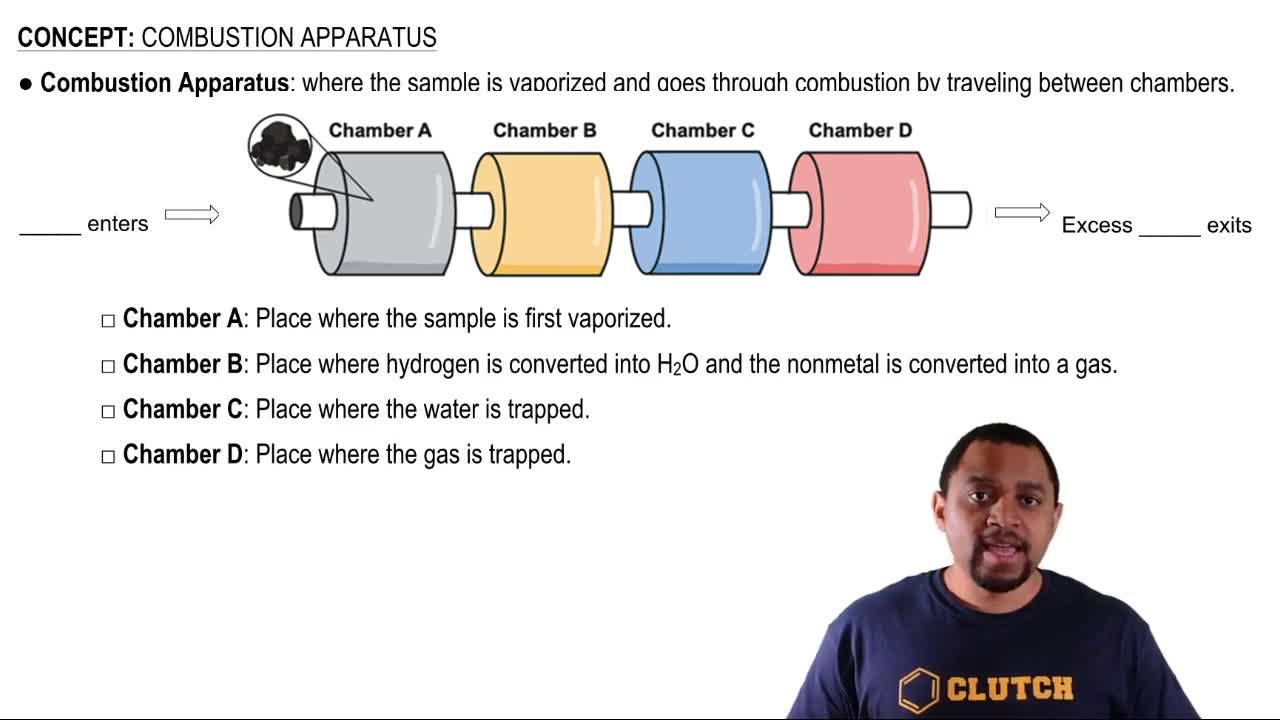At one time, a common means of forming small quantities of oxygen gas in the laboratory was to heat KClO3: 2 KClO3(s) → 2 KCl(s) + 3 O2(g) ΔH = -89.4 kJ (c) The decomposition of KClO3 proceeds spontaneously when it is heated. Do you think that the reverse reaction, the formation of KClO3 from KCl and O2, is likely to be feasible under ordinary conditions? Explain your answer.

Consider the combustion of liquid methanol, CH3OH(l): CH3OH(l) + 3/2 O2(g) → CO2(g) + 2 H2O(l) ΔH = -726.5 kJ (d) If the reaction were written to produce H2O(g) instead of H2O(l), would you expect the magnitude of ΔH to increase, decrease, or stay the same? Explain.
 Verified step by step guidance
Verified step by step guidance
Verified video answer for a similar problem:
Key Concepts
Enthalpy Change (ΔH)

Phase Changes and Energy

Combustion Reactions

Consider the combustion of liquid methanol, CH3OH(l): CH3OH(l) + 3/2 O2(g) → CO2(g) + 2 H2O(l) ΔH = -726.5 kJ (a) What is the enthalpy change for the reverse reaction?
Consider the combustion of liquid methanol, CH3OH(l): CH3OH(l) + 3/2 O2(g) → CO2(g) + 2 H2O(l) ΔH = -726.5 kJ (b) Balance the forward reaction with whole-number coefficients. What is ΔH for the reaction represented by this equation?
Consider the decomposition of liquid benzene, C6H6(l), to gaseous acetylene, C2H2(g): C6H6(l) → 3 C2H2(g) ΔH = +630 kJ (a) What is the enthalpy change for the reverse reaction?
Consider the decomposition of liquid benzene, C6H6(l), to gaseous acetylene, C2H2(g): C6H6(l) → 3 C2H2(g) ΔH = +630 kJ (b) What is H for the formation of 1 mol of acetylene?
Consider the decomposition of liquid benzene, C6H6(l), to gaseous acetylene, C2H2(g): C6H6(l) → 3 C2H2(g) ΔH = +630 kJ (c) Which is more likely to be thermodynamically favored, the forward reaction or the reverse reaction?
